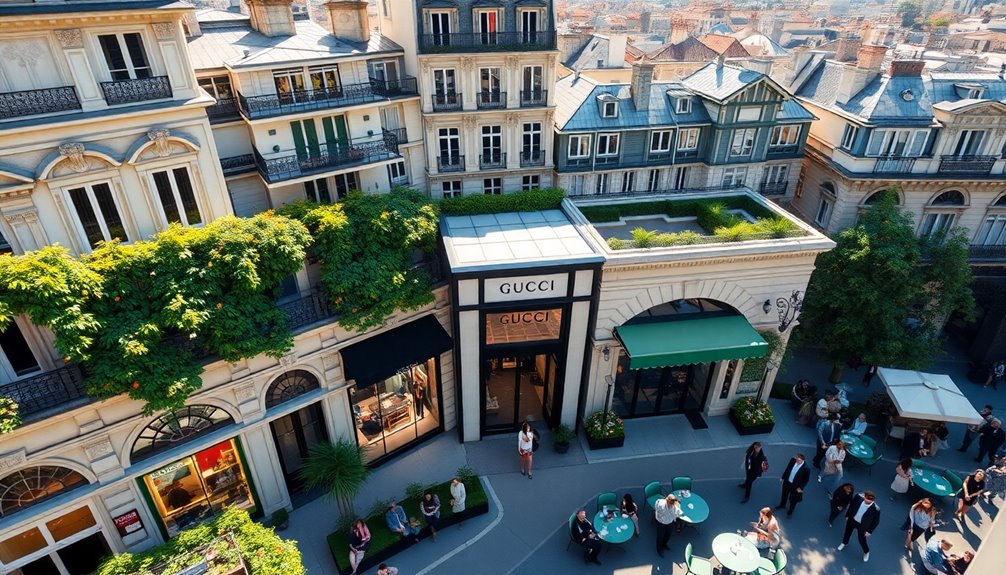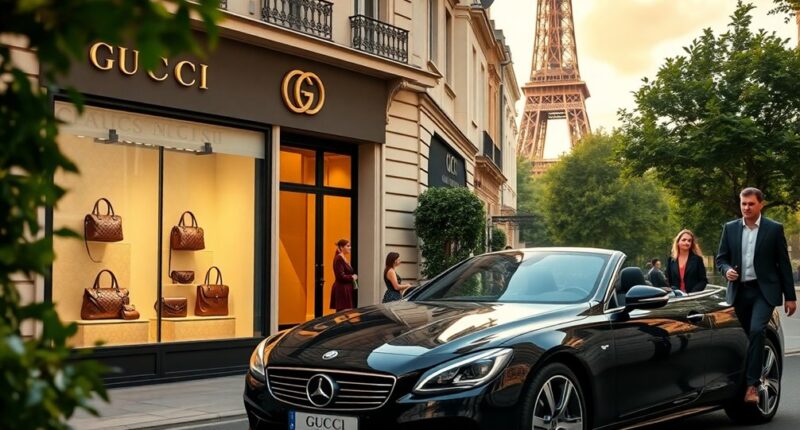You might find it intriguing how Gucci's recent decision to sell prime Paris properties for €837 million reflects a significant shift in luxury retail strategy. By cashing in on valuable real estate while maintaining a stake in key locations, the brand positions itself to attract high-end clients more effectively. But what does this mean for the future of luxury shopping and Gucci's identity in the market?

Gucci's bold strategy is set to reshape the luxury market landscape as its parent company, Kering, takes a significant step by selling prime Paris properties for €837 million. This move not only unlocks substantial capital but also demonstrates Kering's commitment to maintaining its operational control while adapting to current market challenges. By retaining a 40% stake in these sought-after locations, Kering ensures that Gucci and its other luxury brands continue to thrive in prestigious areas like Place Vendôme and Avenue Montaigne.
As you navigate the luxury market, you'll notice that Gucci is specifically targeting affluent individuals aged 20 to 50 who crave exclusivity and high-quality craftsmanship. This demographic is pivotal for luxury brands, as they're willing to invest in products that reflect their status and lifestyle. With strategically positioned stores in major cities worldwide, Gucci prides itself on creating a strong brand identity that resonates with this audience. The pricing strategy is deliberately set to mirror the quality and exclusivity of the products, ensuring that each piece isn't only a purchase but a statement.
However, Kering faces challenges. The recent decline in Gucci's performance has raised eyebrows, leading to a drop in Kering's share price. This sale of the Paris properties is a strategic maneuver to unlock capital, paving the way for future investments and a potential revitalization of the brand. By balancing operational needs with financial prudence, Kering is demonstrating its commitment to navigating through this competitive luxury market.
The partnership with Ardian is seen as a game-changer for luxury real estate strategies. This collaboration opens new growth prospects for Kering and allows the brand to focus on enhancing its core offerings. Instead of merely building a real estate portfolio, Kering's investments are aimed at supporting its brands, ensuring they remain at the forefront of the luxury market. Kering's recent agreement for the sale of real estate assets worth €837 million signifies a strategic realignment that could redefine how luxury brands engage with consumers. As you observe the unfolding dynamics, it's clear that Gucci's strategy isn't just about selling properties; it's about creating a sustainable model that prioritizes brand presence and exclusivity in the most desirable locations.









